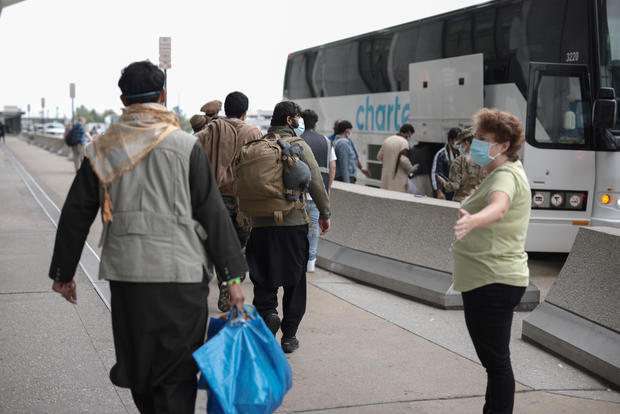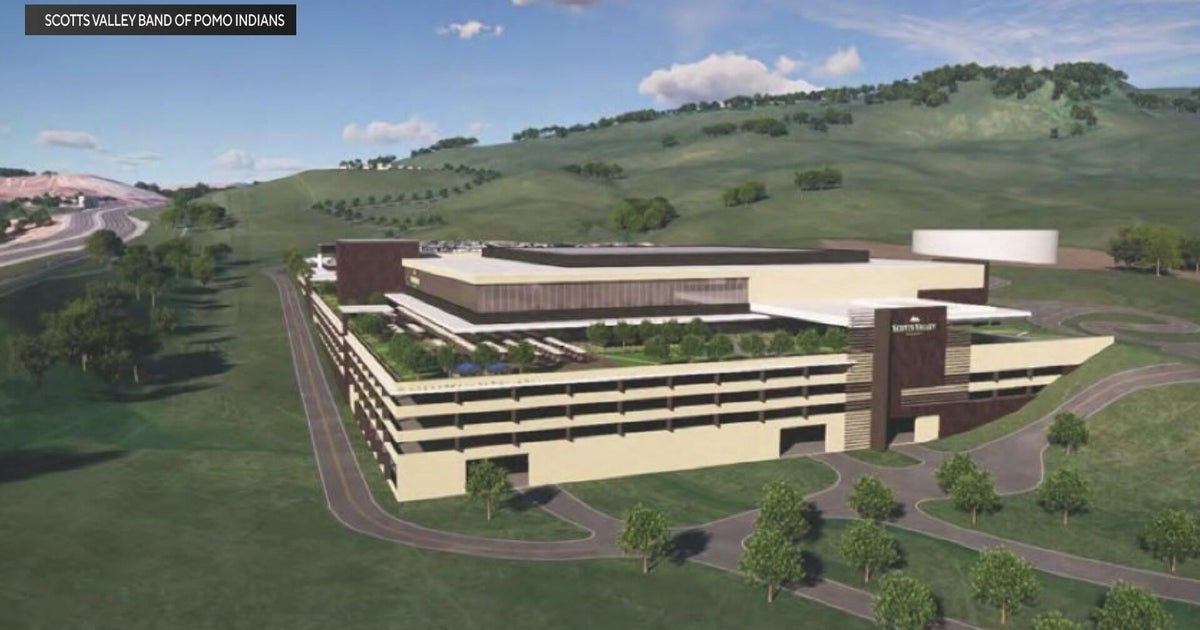Refugee organizations call for Silicon Valley to "leverage the technology they've created" to help Afghans in U.S.
Thousands of Afghan refugees are expected to resettle in the United States in the coming months and America's biggest tech companies have donated millions to nonprofit organizations supporting the resettlement efforts. But refugee advocates say they want the support from the tech sector to continue once the refugees are safely settled in their new homes.
"The tech sector has been very visible in their support and I hope that will lend to every company that we work with being comfortable and sensible about their support of not IRC necessarily but the clients that we are serving," said Lauren Gray, who oversees corporate partnerships at the International Rescue Committee.
The IRC, which has received contributions from Google, Facebook and Uber to help Afghan refugees, is one of nine resettlement agencies in the country. It has delivered aid in Afghanistan for three decades and last year reached one million Afghans with emergency support. It also works with more than a quarter of all Special Immigration Visa arrivals in the U.S.
Gray praised the groundswell of support from tech companies and its employees who have reached out to help but stressed that ensuring "the longevity of the response" will be critical to the success of Afghan refugees.
"The process is really just starting now for Afghans who are arriving in the U.S.," Gray said.
Last month more than 3,100 Afghans with approved SIVs arrived in America, according to newly released government data. Since the evacuation efforts began, the biggest tech companies have donated millions to nonprofit organizations supporting the resettlement efforts.
Google, Facebook and Uber have pledged to donate a combined $10 million to large non-profits like the International Rescue Committee and the Committee to Protect Journalists, as well as smaller grassroots organizations like Women for Afghan Women and No One Left Behind.
Facebook COO Sheryl Sandberg has focused on supporting Afghan women. In late August, Sandberg raised nearly $140,000 as part of her birthday fundraiser on Facebook and donated $1 million from her personal funds to the International Rescue Committee.
Last week, Sandberg hosted Instagram live interviews with refugee advocates and is encouraging others to support a fundraiser launched by a popular Afghan restaurant in Washington, D.C. Facebook, which evacuated its employees and close partners from Kabul in August, also assisted a group of Afghan journalists and their families escape the Taliban, a company spokesperson told CBS News.
AirBnb, which pledged in late August to house 20,000 Afghan refugees worldwide through its nonprofit arm Airbnb.org, told CBS News it has placed nearly 300 Afghan refugees into temporary housing across the U.S. as of last week.
Uber said it's translating its Driver App and key support pages into Dari and Pashto - the two main languages for Afghans - and launching a dedicated phone support line in these languages to ease the onboarding process for Afghan refugees that want to work on the platform.
According to a 2020 survey from No One Left Behind, a nonprofit organization dedicated to helping Afghan translators with Special Immigrant Visas (SIV), more than a third of recipients of those visas said they work with a ridesharing service in the U.S.
Uber reactivated a donation button on its app that allows riders to chip in. So far, the effort has raised over $920,000 for Afghan refugees. The company said it plans to match donations up to $1 million.
Uber has also been providing nonprofits with credits for free rides and meals through UberEats. James Miervaldis, board chairman at No One Left Behind, said Uber gave the organization over $100,000 in credits for rides and meals. Nawa Lodin, chair of the associate board at Women for Afghan Women also confirmed the organization is receiving similar support from Uber.
Lodin said the support from Uber is meeting an "immediate need" because the refugees arriving at Dulles International Airport outside of Washington D.C., don't have another way to get to the processing facility at Fort Lee military base in central Virginia. Other families need help with transportation to the essential appointments like getting a drivers license, signing up kids for school, and meeting with social workers.
As families begin to settle in, Miervaldis said he's expecting an overwhelming number of requests for support from refugees in early 2022 because most SIV recipients get government assistance for about six months – "then they're on their own," he said.
Lodin said she'd like to see the tech sector help Afghan refugees in the long run through job placement programs and career development workshops. "Support from the tech sector is important because they are supposed to be the innovators, the game changers, and that is what refugees need right now," Lodin said.
She explained that Afghan refugees arriving with college degrees and fluency in English don't want to rely on government welfare. "People that were working professionals in Afghanistan, to come here and not have a professional job hurts a lot," Lodin said. "It's the same cycle of refugees coming to America that are doctors and professors and they can't find professional work."
Lodin said cash donations are providing immediate support but implored leaders in Silicon Valley to "leverage the technology they've created" to support refugees with long term, career-orientated programs.
"We've already left so many people behind, people that risked their lives for this country that are still there," Lodin said. "So, we can't just forget about the Afghans that we brought here," she added.




